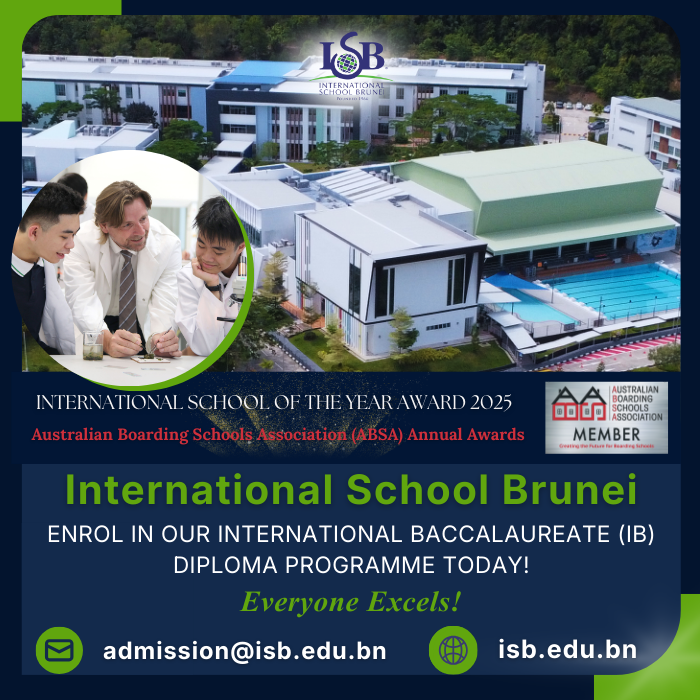Overview of the Education System in Indonesia
When Indonesia claimed its independence in 1945, the country wanted to form a more egalitarian and inclusive education system for its citizens. Although Indonesia is a secular country, the education system, especially in the private sector, includes Islamic education in their curriculum. Nowadays, there is a rising number of religious schools in Indonesia and this is due to the increase of Islamic conservatism among the locals. There is an increase of schools in recent years to accommodate the rapid increase of people in Indonesia.
Current Structure and Format
The education system in Indonesia begins at the age of four to five, where children attend preschool or learning centre for a year or two. Kindergartens are known as Taman Kanak-Kanak (TK). However, it is not compulsory. The next step is primary education, known as Sekolah Dasar, which takes six years to complete and it is compulsory for all children in Indonesia. Children will start their primary education at First Grade, known as, Kelas Satu, and complete their primary education in Sixth Grade, known as Kelas Enam. Following that, students in Indonesia will attend junior high school, known as Sekolah Menengah Pertama (SMP) for three years. Then, students will proceed to Sekolah Menengah Atas (SMA), which is the senior high school in Indonesia for another three years. Students also have the option to attend Sekolah Menengah Kejuruan (SMK), which is a vocational high school and it is usually attended by students who did not achieve the required grade to proceed to a senior high school.
Private and Public Schools in Indonesia
Aside from public schools, there is the option of international and private schools in Indonesia, depending on the location. Indonesia has the highest number of international schools in Southeast Asia and most of these schools can be found mostly in major cities like Jakarta. However, in 2014, the government of Indonesia stopped allowing local students to attend international schools and encouraged them to attend schools that teaches parts of the Indonesia national curriculum and also other international curricula. This type of school is known as national plus school.
Teachers in Indonesia
Teachers in Indonesia are required to have a Bachelor’s degree and a TEFL/TESOL certificate if they would like to teach. Most teachers in Indonesia are provided allowance for their accommodation and the housing price is very reasonable. Some schools help to find housing for their teachers as well. Teaching opportunities are often found in Jakarta, Surabaya, Bali to name a few. The average off-days for preschool and international school teachers are six to ten weeks each year.
Average Cost of Education in Indonesia
Public schools in Indonesia are usually free of charge. However, parents who would like to place their child in either a private or international school should expect to pay a sum of fees. Private schools in Indonesia can be a cheaper alternative if compared to international schools. As for international school fees, expect to pay an annual fee along with a non-refundable annual capital fee. The annual fees itself can range from IDR113,135,000 (US$7,852) to IDR306,500,000 (US$21,160), depending on the grade and the school.
Government Bodies Involved in Education in Indonesia
Most of the schools and education institutions across Indonesia are managed by the Ministry of Education and Cultural Development. However, some learning centres or child care centres in Indonesia are managed by the Ministry of Social Affairs. Religious schools or education institutions are supervised by the Ministry of Religious Affairs.
Indonesia country stats
As of 2021, there are 275,774,906 people in Indonesia. The population is mainly concentrated mostly in Jakarta, which is the capital city of Indonesia.
Information for expats living in Indonesia
When you are interacting with the locals, try to avoid using your left hand as it is considered as unhygienic in Indonesian culture. Pointing with your finger is also considered offensive. Instead, point with your thumb while positioning your hand in a fist. It is also important to respect the elders in Indonesia by greeting them with honorifics such as Bapak/Pak for older male and Ibu/Bu for elder female. When it comes to eating, Indonesian prefer to use their hands to eat. If you prefer cutleries, you can ask for it at restaurants. It is also recommended to dress modestly and abide by specific dress codes at religious sites. In public places, do avoid confrontations in public or public displays of affection as locals prefer to keep a more private lifestyle.
Standard of living in Indonesia
In 2017, Indonesia was ranked 56th for the country with the lowest cost of living out of 112 other countries. The standard of living varies according to the states or cities in Indonesia. People residing in Jakarta have to pay more for food compared to people residing in Bali. In Jakarta, an individual has to pay an average of IDR15,000 (US$ 1) for one meal. As for housing, the average rent for a small house in the more rural areas cost around IDR5,000,000 (US$343) annually.
Public transportation in Indonesia
Traffic jam is a major issue in Indonesia. However, to get around Indonesia, you have a few public transportation options. The first one is taxi service and it is recommended that you take a metered taxi in order to pay a reasonable price for your trip. Bluebird is the best taxi service provider in Indonesia as the drivers can communicate in English and are polite. Bus services in Indonesia provide either large or small buses, depending on the area. Transjakarta is a very popular bus provider among the others in Indonesia. If you happen to be in Jakarta, there is a train system known as KRL, which stands for Kereta Rel Listrik. It is quite an affordable service to get around the city or to different cities. Last but not least, there are some areas that provide boat rides if your destination is an island in Indonesia. There are a variety of boats which depends on your selected destination.
Visa for families and students in Indonesia
Students who are interested in studying in Indonesia have to apply for a student KITAS. The student KITAS validity duration depends on the Ministry of Education and Culture and also the Indonesia Immigration. Foreign students are granted a period between 6 months to 24 months. Students should renew their student visa 3 months before it expires.
Aside from that, a family KITAS permits you to stay in Indonesia but does not permit you to work. You can apply for a family KITAS if you are married to an Indonesian citizen where you can stay with your spouse and your children who are below 18 years old.
If you plan to work in Indonesia, you can apply for a work visa or work KITAS. You are required to have a sponsorship from a company in Indonesia. The granted period for employment in Indonesia depends on the position you hold in the company.
References
- https://www.paulhypepage.co.id/indonesia-educational-system/#Pre-Primary-and-Primary-Education
- https://wenr.wes.org/2019/03/education-in-indonesia-2
- https://education.stateuniversity.com/pages/662/Indonesia-EDUCATIONAL-SYSTEM-OVERVIEW.html
- https://www.statista.com/topics/2398/indonesia/
- https://www.teachingnomad.com/jobs/destinations/teach-in-indonesia/
- https://www.expat.com/en/guide/asia/indonesia/11644-transports-in-indonesia.html
- https://www.expat.com/en/guide/asia/indonesia/jakarta/20996-adjusting-to-the-local-culture-in-jakarta.html
- https://www.expatarrivals.com/asia-pacific/indonesia/education-and-schools-indonesia
































